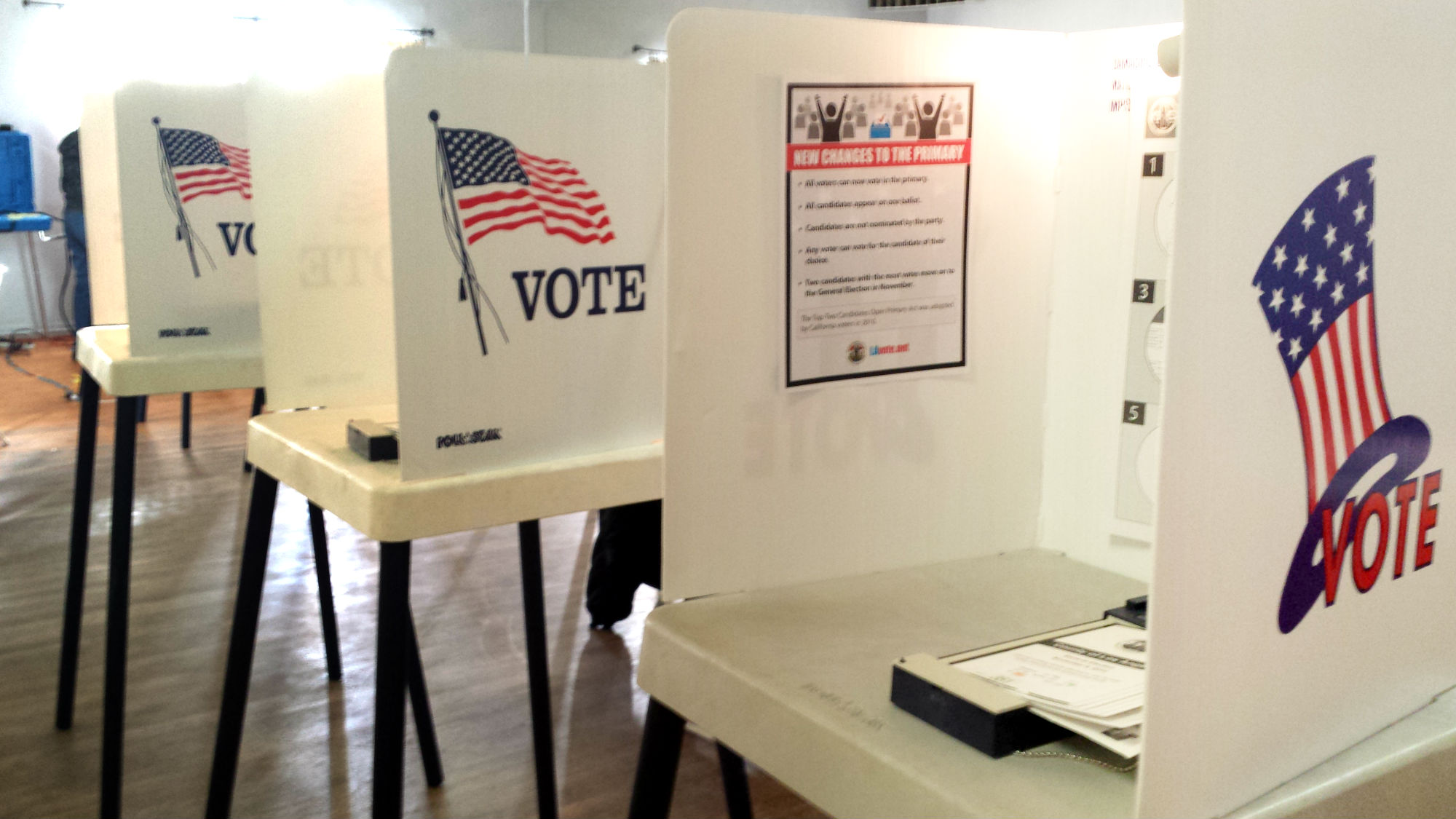While most attention is on Trump and Clinton, there are still a number of state primaries ahead of us. The most publicized are John McCain’s race in Arizona, and Marco Rubio’s run in Florida. But another famous name won her primary last night: Liz Cheney. It’s the seat her father, former Vice President Dick Cheney, held 40 years ago. Two years ago, she ran for a senate seat there, and went down in flames. She was seen as a “carpetbagger” who had recently moved from Virginia.
She cited “serious health issues” (she was sick of being behind in the polls) after having a very public fight with her lesbian sister, Mary, over same-sex marriage (which is no longer an issue, of course). A “carpetbagger” is defined as 1. A Northerner who went to the South after the Civil War for political or financial advantage. 2. An outsider, especially a politician, who presumptuously seeks a position or success in a new locality.
This time out, Cheney had an easier time of it. There were eight candidates, and she was the one with the name, money, and big endorsements. Even so, the polls had her at only 21%, with 52% undecided.
Cheney had 40 percent of the vote to state Sen. Leland Christensen’s 23 percent when The Associated Press called the race with 73 percent of precincts reporting. State House Speaker Pro Tempore Tim Stubson took 18 percent and five other Republicans split the remainder of the vote. . .
Two other Wyoming Republicans, Christensen and Stubson, registered in the one public poll of the race, but trailed far behind Cheney, who spent approximately $1 million during the primary. Christensen scored a last-minute endorsement from Kentucky Sen. Rand Paul, a longtime critic of Dick Cheney who assailed Liz Cheney on foreign policy and accused her of carpetbagging in the race.
Meanwhile, in Alaska, incumbent Senator Lisa Murkowski easily won her primary.
Alaska Sen. Lisa Murkowksi easily won her Tuesday primary, a very different outcome from the primary loss six years ago that forced her to wage a general election write-in campaign to win back her seat.
Murkowski got 71 percent of the vote in the four-way primary, earning nearly five time the votes than second-place Bob Lochner, who finished with 15 percent. . .
After losing to tea party-backed candidate Joe Miller in 2010, Murkowski did what only one other senator had done before her: win the general election through a write-in campaign.
The National Republican Senatorial Committee [NRSC] and GOP leadership backed Miller once he won the nomination and pushed Murkowski aside when she challenged him in the general.
“I informed her that by choosing to run a campaign against the Republican nominee, she no longer has my support for serving in any leadership roles,” Senate Majority Leader Mitch McConnell said in 2010.
This year, the NRSC’s tone was quite different.
“She puts Alaska first each and every day, fighting to make sure that the Alaska way of life is safe from politicians and bureaucrats in Washington, D.C.,” NRSC Chairman Sen. Roger Wicker, R-Miss., said in a statement. . .
The seniority she’s accumulated for the state was an argument her supporters made for keeping her in office.
“We need to have Lisa in her position as chair of Senate Energy,” former Lt. Gov. Mead Treadwell said in email to Roll Call Monday.
Murkowski has a reputation for reaching across the aisle and bucking her party on some hot-button issues like gay rights, voting rights and whether President Barack Obama’s Supreme Court nominee should get a Senate hearing.
She’s the third-most moderate senator on the Club for Growth’s 2015 rankings, and some of her positions continue to anger conservatives in the state.
In the general election, Murkowski will face Ray Metcalfe, who won 60 percent of the vote in the Democratic primary over Edgar Blatchford, libertarian Cean Stevens, and independent Margaret Stock, who had at first sought to run on the Democratic Party line in the primary.
Murkowski is best known in the contiguous States as having had knock-down, drag-out fights with half-Governor Sarah Palin. The Democratic nominees in both states are barely mentioned, since in deep, deep red states of Wyoming and Alaska, neither has a serious chance of winning the general election.
As an example of how lopsided Wyoming is, the story about Ryan Greene winning the Democratic nomination had a picture of Cheney, instead, and devoted 19 paragraphs to Cheney, and only 3 paragraphs to Greene. Republicans outnumber Democrats 3-to1 in Wyoming.
Next up is Virginia’s special primary for local offices, August 27, and Guam has a primary on August 30, but the next primaries of general interest are on August 30, in Florida and Arizona. In Florida, the odds are so much in his favor that the headline is, “Marco Rubio ignores Republican primary challenger Carlos Beruff.”
The big story in Florida is the Democratic primary.
South Florida Democrats who didn’t get enough of the 14-month presidential primary contest between Hillary Clinton and Bernie Sanders are getting a chance to reprise the battle in a high-profile local contest.
U.S. Rep. Debbie Wasserman Schultz is the fill-in for Clinton — a well known, long time leader in the Democratic Party, favored by the party establishment and major donors.
Tim Canova plays the role of Sanders. He’s a little known outsider, never before active in Democratic politics, who is energizing legions of small campaign contributors from around the country.
Meanwhile, in Arizona, John McCain is apparently coasting to a win in his primary.
We’ll take another look at these races next week.
